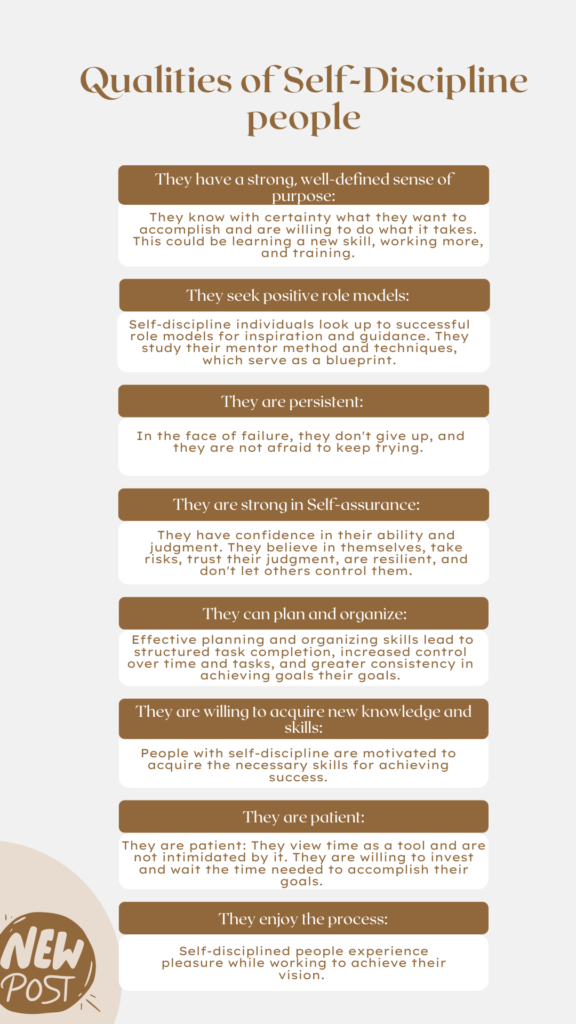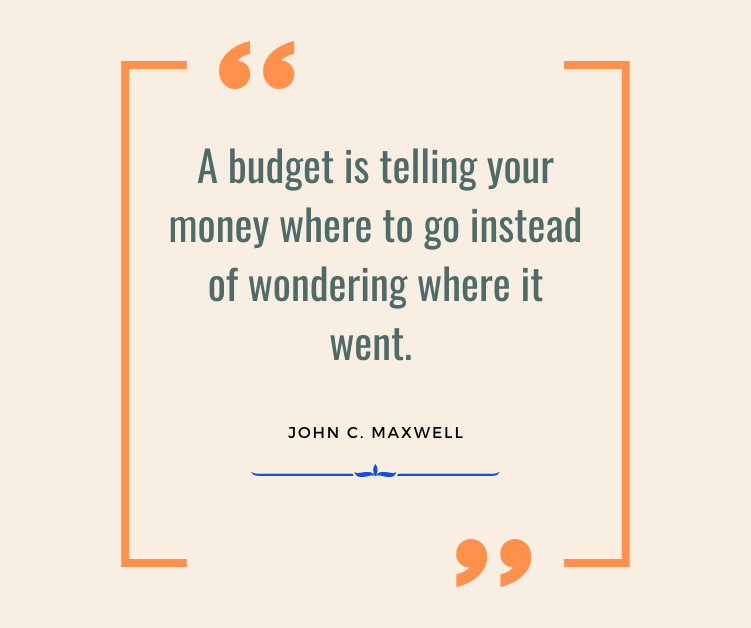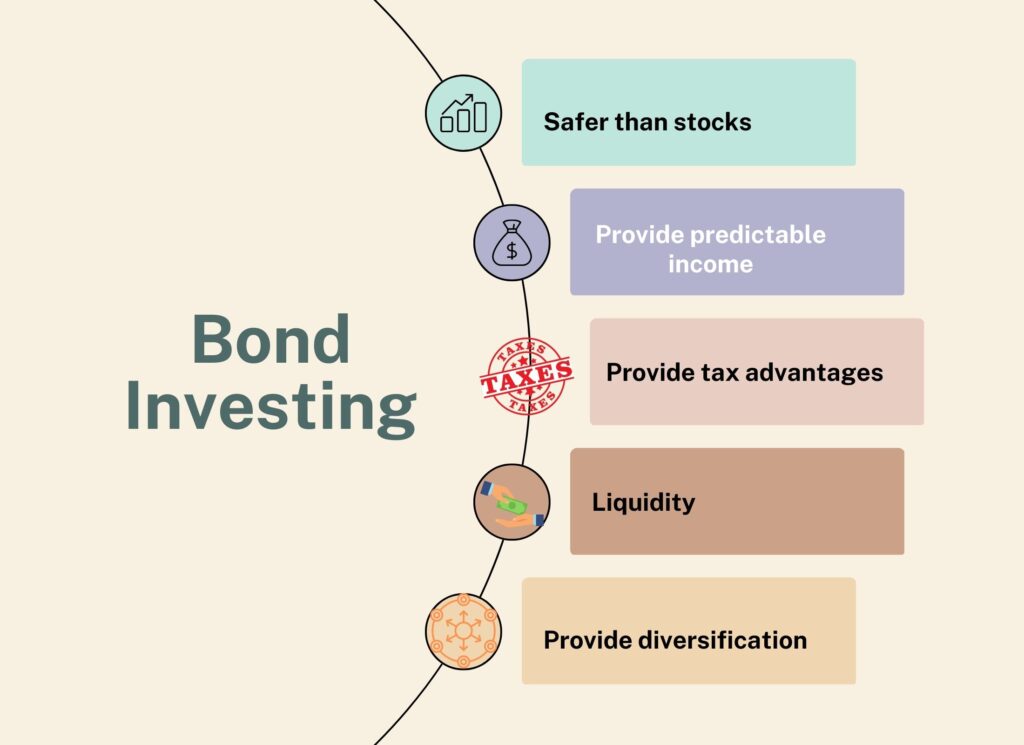We can all agree that achieving success in anything requires self-discipline. Have you ever made a promise to yourself and then totally dropped the ball? Don’t worry; you’re not the only one. And let’s be honest; when we don’t follow through on our commitments, it can leave us feeling pretty down and out.
Studies show that people with self-discipline are happier. This is due to the fact that with self-control and discipline, we are more likely to achieve the goals that truly matter to us. In essence, self-discipline is the crucial link between our defined plans and our ability to attain them.
I tried many things in my twenties, but most didn’t work out. At first, I thought it was because of stuff outside my control, but looking back, I can see that my lack of discipline was the real problem. If you want to make something awesome, you must keep going, even when it’s tough, and there are many distractions. The feeling of achieving something you’ve been working towards is worth it!
People with higher levels of self-control are more decisive in their actions and do not allow their emotions or impulses to control their decisions. They take ownership of their beliefs and take deliberate steps toward achieving their goals. This results in less time spent pondering whether to engage in behaviors that do not align with their values and objectives. As a result, they are less susceptible to temptation and experience higher levels of satisfaction in their lives.
Qualities of self-discipline people
- They have a strong, well-defined sense of purpose: They know with certainty what they want to accomplish and are willing to do what it takes. This could be learning a new skill, working more, and training.
- They seek positive role models: Self-discipline individuals look up to successful role models for inspiration and guidance. They study their mentor’s method and techniques, which serve as a blueprint. They find coaches who will push and motivate them to perform excellently. These coaches pinpoint areas that require improvement as you progress to the next skill level and assist you in preparation.
- They are dreamers: They have vision and imagination that allow them to see realities in the mental and spiritual form before they happen. Great success starts with a dream, an image of something. Then, it is transformed into an action that leads to success.
- They are persistent: In the face of failure, they don’t give up and are not afraid to keep trying.
- They are strong in Self-assurance: They have confidence in their ability and judgment. They believe in themselves, take risks, trust their judgment, are resilient, and don’t let others control them.
- They can plan and organize: Effective planning and organizing skills lead to structured task completion, increased control over time and tasks, and greater consistency in achieving their goals.
- They are willing to acquire new knowledge and skills: People with self-discipline are motivated to develop the necessary skills for success.
- They are patient: They view time as a tool and are not intimidated by it. They are willing to invest and wait the time needed to accomplish their goals.
- They enjoy the process: Self-disciplined people experience pleasure while working to achieve their vision.
How can you master self-discipline?
If you want to improve your self-discipline and have more control over your choices and habits, there are effective strategies you can use. To live a happier and more fulfilling life, you must master self-discipline, especially if you want to step out of your comfort zone. Here are five powerful tips to help you achieve this goal.
Find a mentor or role model.
Having a role model or mentor can be incredibly helpful in achieving your goals. They can teach you valuable lessons and provide a blueprint for success. A good role model inspires and motivates you, setting a positive example to follow. Pay attention to your mentor’s attitudes and behaviors, especially during stress and pressure. Observing how they developed self-discipline and critical thinking skills can also be incredibly beneficial. You can improve your skills and achieve your goals by identifying and emulating these characteristics.
Are you looking for a mentor but unsure where to start? Or perhaps you feel like no one around you could fulfill that role. I can relate – when I began my transformation journey; I faced similar doubts. However, I discovered that I could find indirect role models through books and YouTube. For instance, Stephen Covey, the author of “The 7 Habits of Highly Effective People,” has become my role model. His teachings, biography, and legacy have inspired and motivated me, making me a better and more disciplined person.
Similarly, I have discovered sources of inspiration on YouTube. I am a follower of a girl who has achieved what I aspire to. Her channel is named “Rose Han.” She has been the driving force behind my blog, as her content has transformed my life. Through her videos, she educates individuals on achieving financial freedom. As I embark on my journey toward financial independence, I feel compelled to share this valuable concept with others. After all, her videos have been a source of inspiration, motivation and an excellent example of what self-discipline can do for me.
By observing those around me, I was fortunate enough to find a mentor in a long-time friend. His admirable qualities and positive outlook on life have greatly influenced me, and surprisingly, I overlooked him for so long. I encourage you to also pay attention to those around you, as they may not appear as role models at first glance, but upon closer inspection, they may surprise you. It’s important to remember that your role model isn’t perfect, and that’s a good thing. Their imperfections show that you don’t need perfection to achieve your goals. Instead, focus on adopting their self-discipline.
Set clear goals and have an action plan.
What is your vision? What do you want to accomplish? Create well-detailed goals that align with your vision and look at them daily to constantly remind yourself of what you are working for. An action plan should accompany each of your goals. It’s essential to have a clear strategy outlining each step you must take within a specific timeframe. You can also create a mantra to help you stay focused and connected to your mission. Otherwise, you may wander off course or become distracted.
Why is setting goals important? Setting goals can bring numerous benefits and advantages. It can inspire and encourage new behaviors, provide direction, and help maintain momentum in life. Additionally, it can align your focus and enhance your sense of self-mastery.
Plan Your Day
A plan for your day provides clear direction and enables you to accomplish all your tasks. Rather than aimlessly moving from one task to another, planning directs your energy and actions toward achieving daily goals.
Planning your day is a great way to stay organized and productive. You can accomplish this by writing down your daily plan the night before or after you have completed all your tasks for the current day. Having your plan ready from the previous night allows you to start your day without any unnecessary delays. Here are four benefits of daily planning:
- Builds time management skills.
- Boosts focus and productivity.
- It helps you meet deadlines.
- Create work balance
Practice delay gratification
Delay of gratification involves resisting the urge to go for an instant reward in the expectation of receiving a more valuable reward in the future. Developing this skill is crucial for self-regulation and self-control.
Imagine I gave you two options: $100 now or $10,000 in ten years. Which option would you choose? If you select the immediate $100, you might be giving in to the temptation of a smaller reward right now instead of waiting for a bigger one in the future. This is a common problem in our society today. Many people use debt to purchase something they want now instead of waiting and saving up for it. Unfortunately, this lack of self-control often leads to being deep in debt.
Train your brain to employ delayed gratification—it will benefit you in many ways. You can start small by setting rules for yourself. For instance, you can create the rule of waiting twenty-four hours before making an unnecessary purchase. Add the item to the cart and let it sit there for twenty-four hours. If you’re still interested in the item after twenty-four hours, it’s a good time to make the purchase. However, you may find that you no longer want the item, which can save you both time and money. This is an excellent way to train your brain to practice delaying gratification.
Remember to keep your goals in mind at all times. This will help you stay committed to delaying instant gratification and work towards achieving your greatest aspirations and dreams.
Don’t neglect the small steps.
To achieve big goals, you must start by taking small steps. These daily actions may seem insignificant, but they have a massive impact on your life. For instance, if you improve by 1 percent every day for a year, you will be thirty-seven times better by the end of the year. Conversely, if you decline by 1 percent every day, you will almost reach zero by the end of the year. Small victories or setbacks accumulate into more significant results. Therefore, paying attention to the small steps that lead to achieving big goals is crucial.
Suppose you want to improve your fitness. You can begin by cutting down on one sugary drink daily and incorporating more vegetables into your meals. Instead of using the elevator, try taking the escalator. Although these changes may seem minor initially, they can ultimately lead to significant results. By making small adjustments to your daily routine, you’ll see the benefits add up over time.




